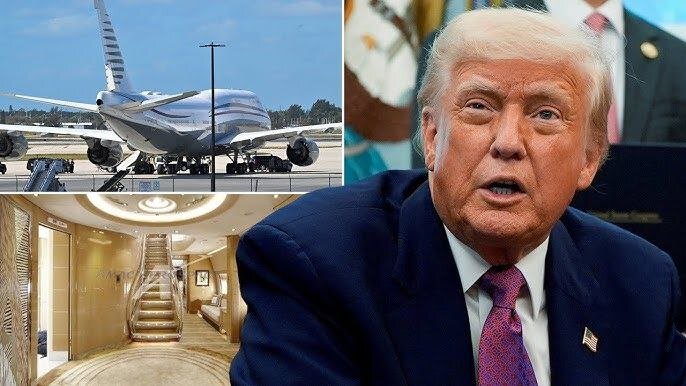Trump’s Persian Gulf tour prioritizes business over diplomatic ethics

TEHRAN – In May 2025, U.S. President Donald Trump embarked on a high-profile Persian Gulf tour, visiting Saudi Arabia, Qatar, and the United Arab Emirates (UAE). While the White House promoted the trip as a diplomatic success marked by multi-billion-dollar defense and economic agreements, critics raised alarms over ethical violations.
Accusations surfaced that Trump leveraged his presidential role to advance personal and family business interests, triggering serious legal and political backlash.
Strategic incentives and regional goals
Trump’s visit was driven by a desire to secure large-scale investments and arms deals while strengthening U.S. economic ties with the Persian Gulf Arab states. He argued that the estimated $4 trillion in potential agreements reflected his administration’s transactional approach to diplomacy.
Another key objective was to recalibrate U.S. policy in the region by easing sanctions on Syria’s transitional government and fostering cooperation in defense and technology, particularly in sectors such as semiconductors and artificial intelligence (AI).
Beyond economics, Trump aimed to encourage Persian Gulf states to play a more active role in stabilizing the region. His agenda addressed ongoing conflicts, most notably the Gaza war and alleged concerns over Iran’s nuclear program. The visit underlined Trump’s belief in using economic incentives to advance foreign policy objectives.
Major agreements and diplomatic engagements
The tour yielded several landmark deals:
In Saudi Arabia, Trump announced a $142 billion arms agreement and broader partnerships in energy and technology. Riyadh’s investments in the U.S., already estimated at $600 billion, are expected to grow, spurred by American firms like Nvidia and AMD investing heavily in Saudi AI projects.
In Qatar, over $240 billion in deals were secured, including a landmark $96 billion contract with Boeing. The visit marked a milestone as the first official trip to Qatar by a U.S. president, opening a new chapter in bilateral ties.
In the UAE, a $1.4 trillion AI-focused data center project and $1.6 billion in arms sales signaled deepening cooperation in both defense and emerging tech sectors.
In an unexpected twist, Trump also met with Syrian President Ahmed al-Sharaa, announcing plans to lift longstanding sanctions on the country. The move, controversial at home, was framed as a step toward Syria’s return to the global community.
Trump further encouraged Persian Gulf Arab leaders to join the Abraham Accords and recognize Israel, though the response was largely noncommittal.
Trump’s Persian Gulf trip serves as a warning about the dangers of mixing personal goals with national interests on the world stage.
Corruption allegations and ethical questions
Despite the economic achievements, the trip was spoiled by serious accusations of corruption and ethical wrongdoing. Critics said that Trump's official work was very mixed with his family’s private business interests.
Trump-branded properties in Dubai, Jeddah, and Doha were said to gain from the diplomatic push and flow of Persian Gulf money.
Jared Kushner, Trump’s son-in-law, was also accused of using the trip to direct investments into his business projects, raising issues about conflicts of interest.
One particularly disputed event was Trump’s acceptance of a Boeing 747 jet from Qatar’s ruling family. Seen as a personal gift, the act caused bipartisan backlash in Washington. Lawmakers raised concerns about national security risks and the troubling look of wrongdoing.
In response to these issues, cross-party groups in Congress tried to stop some arms sales to the UAE and Qatar. They were worried that U.S. weapons could end up with groups linked to human rights abuses.
The House Select Committee on Strategic Competition also warned that some deals in semiconductors and AI could create big risks, especially with Chinese influence.
Trump's approach to Israel also faced criticism. He did not manage to stop the fighting in Gaza or move peace talks forward.
During his stay in the region and after his departure, Israel has intensified genocidal acts in Gaza. Also, his idea to turn Gaza into a U.S.-run "freedom zone" was widely seen as both troubling and impractical.
The journey led to huge deals for arms purchases and investments. It also showed the risks when public roles and private benefits overlap.
The issues, especially those tied to corruption, conflicts of interest, and personal gains by Trump's inner circle, exposed weaknesses in U.S. governance. More so, they made people question the real aims and trustworthiness of American policies in the region.
In the end, the trip led to important economic and diplomatic goals, but it compromised ethical norms and possibly harmed Washington’s long-term influence. This episode serves as a warning about the dangers of mixing personal goals with national interests on the world stage.
Leave a Comment